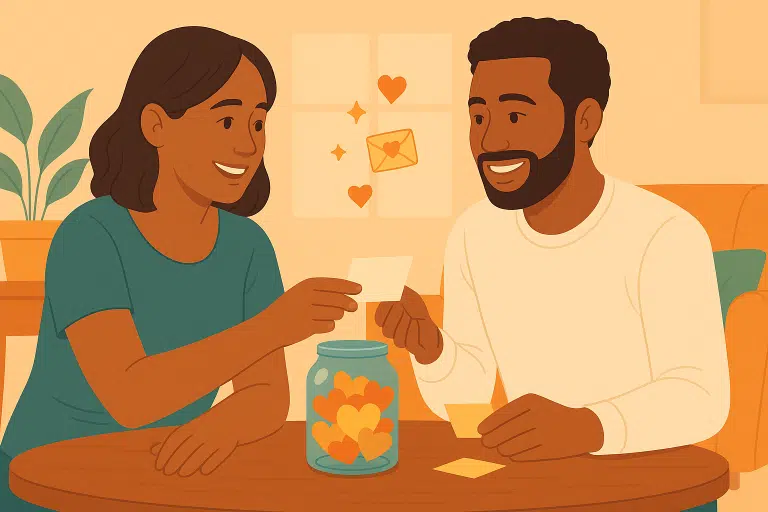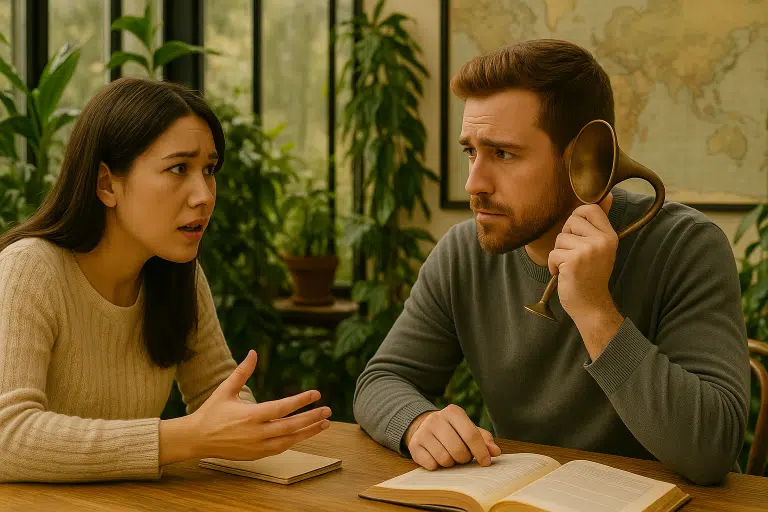Often, couples will not seek therapeutic support until their issues have gotten out of control and become problematic. A study was completed to better understand what stops couples from being able to seek couples therapy when they are in turmoil and the results concluded that there were six distinctive barriers that prevent couples from seeking professional help. The barriers include cost of treatment, logistics – finding time for sessions, modality of the treatment, trust, relational factors, and a clear therapeutic process.
As a therapist, it is our duty to understand these barriers and ensure that we support you in breaking through these barriers, allowing you to safely engage in couples therapy and work through your relationship concerns.
Benefits of Couples Therapy
With the support of a couples therapist, you can rekindle the open and honest communication that likely formed the foundation for your healthy relationship. Throughout sessions, you will work together with your therapist and partner to cultivate effective communication skills and gain a better understanding of how to effectively express your personal needs, desires, and any concerns that you may have. Some skills that you will foster within a couple’s therapy session are active listening, empathy for one another, and the ability to develop a non-judgmental, safe space for your partner and you to hold an open dialogue. We will work together to learn how to express our emotions without blame or criticism using “I” statements which help us convey our personal feelings.
Improving Communication in Relationships
In order to strengthen our communication with one another, we need to cultivate emotional intimacy. Emotional intimacy helps to strengthen the bond between couples because it can increase our ability to share our vulnerabilities, hopes, dreams, and aspirations with our partners in a manner that maintains a sense of safety. Safety is present within our relationship when we can create and maintain an environment of trust and acceptance. This environment is cultivated through continuously working toward effectively engaging in activities that deepen our emotional connection such as sharing our daily experiences – when our partner asks us ‘how was your day?’ responding with a deeper answer than the common, “fine” – expressing gratitude for one another, and discussing personal growth and change. Creating a daily routine with one another that allows emotional closeness – such as date night – can help us to cultivate our emotional intimacy.

Managing Conflict Constructively
Many of us spend the majority of our adult lives in intimate relationships. While in a relationship, we can either have a sense of safety and security – which protects us from feelings of loneliness – or a feeling of uncertainty. When we are secure in our relationships, they can be very satisfying; but, on the flip side of that, relationships can also be tumultuous and problematic, causing our mental and physical health to suffer. In relationships we experience arguments, power struggles, intimacy issues, financial conflicts, and parenting issues – these matters can cloud our judgements and cause us many differing reactions. Throughout this blog post, we will explore the importance of seeking couples therapy to overcome these challenges and maintain a deep sense of connectedness with our partners.
Barriers to Couples Therapy
Relational conflict is inevitable in any relationship but the way we deal with conflict in our relationships can determine the strength of our bond. When we are working together to find constructive solutions to our conflicts, we can avoid unnecessary escalation of problems. As mentioned earlier, when we use “I” statements, it helps us to focus on the way we are feeling and avoid personal attacks on our partners. When we practise active problem-solving together, we can brainstorm ways to reach an agreeable compromise to the conflict. When a solution seems to be impossible, it can be very helpful to involve your therapist in navigating those challenges that are much more difficult.
Balance Between Our Individualities and Togetherness
Another piece of managing our conflicts involves the maintenance of our individuality while also working to nurture our shared bond and sense of togetherness. We all come into our relationships with personal aspirations and dreams and when we are able to foster our emotional intimacy, we can work together to ensure we are encouraging our partners to reach their goals and attain their dreams, while creating new shared goals. The safe and trusting environment that we foster helps us to work together to find shared hobbies and find the right balance between personal aspirations and joint activities. By respecting one another’s individual goals and aspirations, we can ensure that we grow together as a couple, while also growing individually.
Prioritising Quality Time
In a world where we are all so busy and there are constant distractions that occur daily, it is crucial to ensure that we are prioritising quality time together. Consciously putting forth effort to foster connection and closeness, without outside distractions, is so important. When we put our phones down, and set aside time dedicated to being together, it ensures that we are nurturing our relationships. When we laugh together, have experiences together, and engage in meaningful conversations together, we create lasting memories and joy that can help us get through those difficult times and conflicts that inevitably arise throughout time.
Taking everything into account
Conflict within relationships is inevitable. Through couples therapy, we can work together to use our conflicts as an opportunity for growth and deepening connections. When couples work together to strengthen their bonds, they are able to maintain a sense of connectedness. Couples therapy gives us an opportunity to work together to foster effective communication, emotional intimacy, constructive conflict resolution, balancing our individualities and togetherness, and prioritising quality time. All of which are very important pieces of healthy relationships and lasting partnerships.
References
Burr, W. R. (1990). Beyond I-statements in family communication. Family Relations, 266-273.
Crowe, M., and Wylie, K. (2017). Overcoming Relationship Problems 2nd Edition: A self-help guide using cognitive behavioural techniques.
Robinson.Dalgleish, T. L., Johnson, S. M., Burgess Moser, M., Wiebe, S. A., and Tasca, G. A. (2015).
Predicting key change events in emotionally focused couple therapy. Journal of marital and family therapy, 41(3), 260-275.
Hubbard, A. K., and Anderson, J. R. (2022). Understanding barriers to couples therapy. Journal of Marital and Family Therapy, 48(4), 1147-1162.
Kline, G. H., Pleasant, N. D., Whitton, S. W., and Markman, H. J. (2006). Understanding couple conflict. The Cambridge handbook of personal relationships, 445-462.
Markman, H. J., and Ritchie, L. L. (2015). Couples relationship education and couples therapy: Healthy marriage or strange bedfellows?. Family process, 54(4), 655-671.












